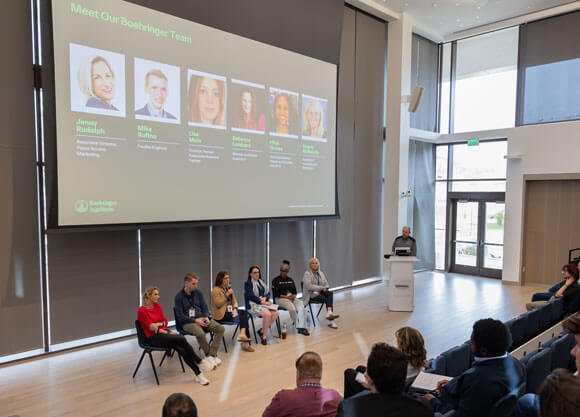
Exploring Global Asset Allocation Opportunities at Quinnipiac GAME XIV Forum
April 08, 2025

April 08, 2025

The panel was hosted by Katrina Dudley, senior vice president investment strategist at Franklin Templeton. Her panelists were Jitania Kandhari, head of macro and thematic research for emerging markets and Portfolio Manager for Passport Equities at Morgan Stanley, and Katherine S. Santiago, managing director and quantitative research head for the multi-asset solutions team at J.P. Morgan. “It’s still unusual to see three women in finance on a panel,” Dudley said.
“What quants mean for us is this: Whatever you do, do it systematically—removing the emotion.” said Santiago. “Using what works long term and not being guided by fear. Thinking about the necessary analytic questions and always asking them.”
Kandhari said that both gold and crypto are alternatives for investors who are losing dollar confidence. On AI, she said Morgan Stanley had earlier bought the AI picks and shovels, and is now shifting to the users of AI like software companies. In the ‘80s and ‘90s we had to seek data out, but now it’s only a click away. We have to learn how best to discern and process what’s most useful.”
Dudley added that AI is best at synthesizing data and modeling, “but it’s terrible at understanding the stock market’s psyche. We will always need human analysts.”
Kandhari said that emerging markets are at the developing stage of capital financial markets, and the analyst’s challenging task is determining which will “break out.” She cited promising regions as India and “pockets of eastern Europe, Southeast Asia and Latin America.”
Asked for an insight, Kandhari cited a Colin Powell talk in which he said that soldiers go into battle with 40 to 70 percent of the information they need. “It meant that you eventually have to go with your gut,” she said. Santiago said her lesson was to “be humble” and anticipate rare events. “You need to constantly reassess your models and realize they’re not perfect,” she said.
The virtual GAME conference drew more than 1,600 participants from 150 universities. There are 30 panels, over 100 speakers, and 64 companies represented.

Quinnipiac Today is your source for what's happening throughout #BobcatNation. Sign up for our weekly email newsletter to be among the first to know about news, events and members of our Bobcat family who are making a positive difference in our world.
Sign Up Now